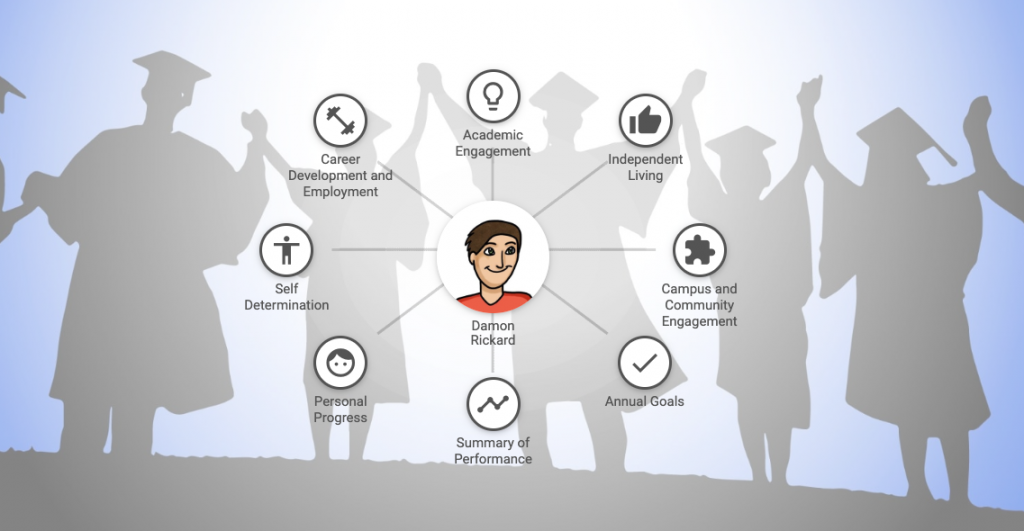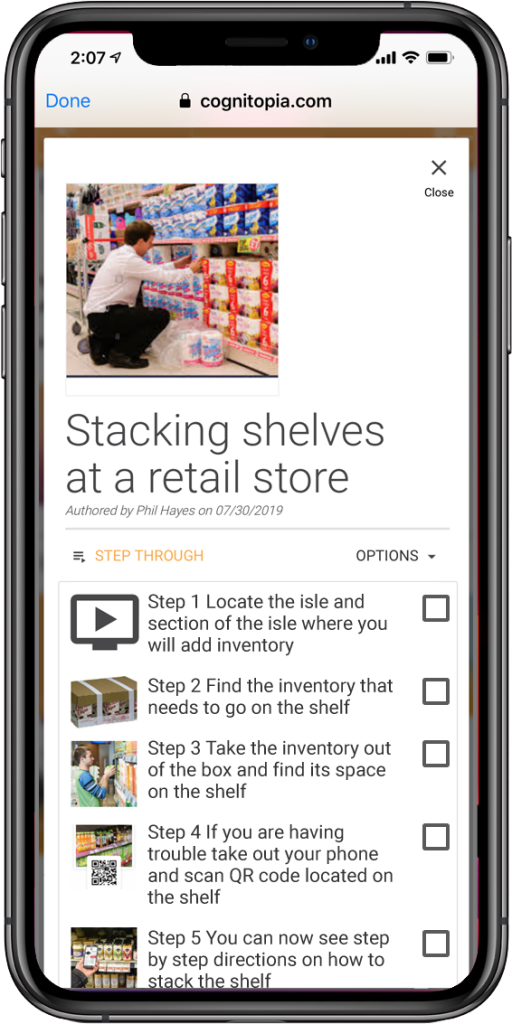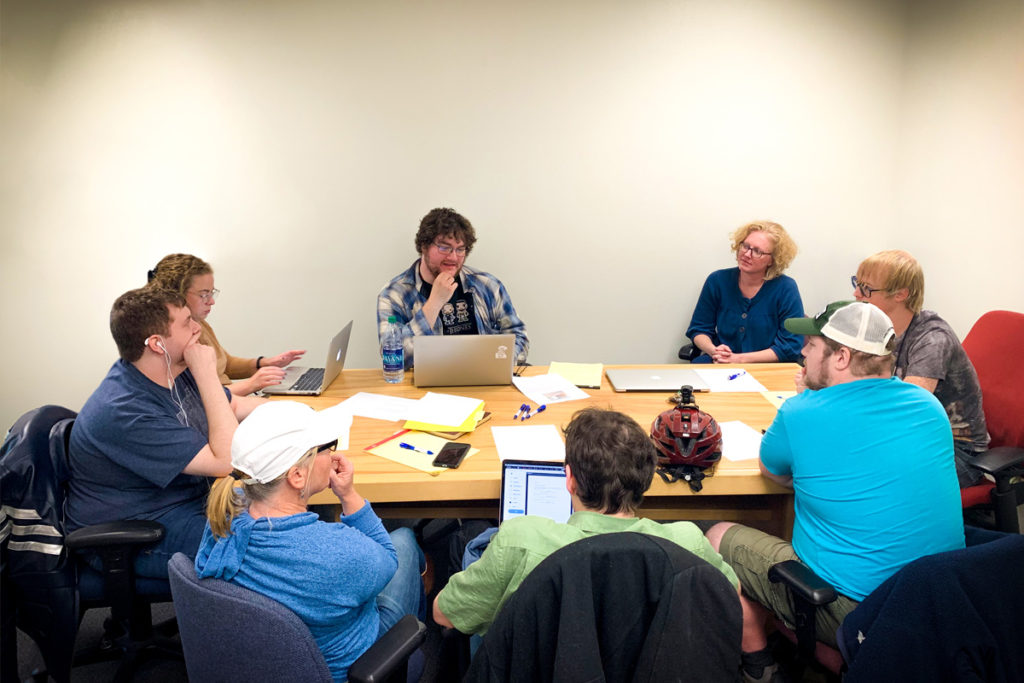Using Self-Management and Team Collaboration Tools for Pre-Employment Transition Services and Competitive Employment
Person-Centered Planning (PCP) is a common process employed by agencies that provide supported living and employment services to individuals with disabilities. Mandated by the Centers for Medicaid and Medicare Services at the federal level, one goal of the PCP process is to facilitate access to employment services in community settings for individuals with intellectual and developmental disabilities (IDD), and to foster active participation in developing their other long-term goals. In other words, PCP helps an individual, their family, and their support team to maintain focus on life goals and become more involved in directing individualized supports and services.
Typically beginning at age 14, a transition assessment and planning process with a student-centered focus is recommended by the Individuals with Disabilities Education Act (IDEA) as a way of identifying post-school employment goals based on a student’s preferences, interests, needs, and strengths. In employment, best practice suggests providers use the Discovery process to get to know the job seeker and fully inform the job search.
Person-centered career planning has also been recommended as an ongoing process of learning both about and from a job seeker, rather than a one-time event such as an interview. In practice, however, while often promoting important group brainstorming, the potential impact of person-centered planning beyond idea generation often falters due to a lack of coordination and follow-through on goals and action items. Further, the individual who is the focus of the PCP is often not an active participant in the monitoring and coordination of follow-through and communication with team members.
To solve these challenges, Cognitopia has created a powerful suite of web-based tools to support the PCP process, facilitate pre-employment transition services and enhance competitive employment. Here’s a quick overview of three of those tools: MyLife, Routines, and the PCP Toolkit.
MyLife
Using text, photos, video, and audio, the MyLife ePortfolio tool helps individuals with autism and intellectual disabilities put their IEP and ISP goals into their own words, document their progress, and easily share their story with others. A student’s MyLife ePortfolio stays with them during transition and beyond, becoming, in essence, a digital storytelling platform to help communicate who they are, what they can do, and what they’ve identified as their post-school employment and life goals.

Routines
Routines makes it easy to create and access an individualized collection of task-analyzed activities that use videos, photos, and accessible text to provide systematic instruction to improve workplace independence and performance.
Ideal for the employer and the employee, Routines reduces workplace anxiety and guides work task execution and switching as well as soft skills and job-related activities like filling out a time card or using public transportation to get to the job site.

PCP Toolkit
Currently in development, the PCP Toolkit will help users with disabilities drive the services they receive and address the lack of follow through with action items developed in the PCP process. The PCP Toolkit is specifically designed to enhance team collaboration by defining a set of PCP action items with persons responsible and due dates, systematically reminding team members of commitments with follow-up prompts, tracking the completion of activities with enriched data, and acknowledging action item completion.
The PCP Toolkit is designed specifically to support the employment discovery process by enabling team members to identify businesses, associations, and other community locations on a mapping interface that can be interoperable with Google maps, Apple maps or a Bing search. In essence, it leverages the power of the PCP team to crowdsource people, places, and connections that can relate to furthering the employment goals of the individual.
Team Collaboration
An essential part of the Cognitopia Platform is the integral team collaboration and support that it provides. Team members can include the individual with IDD, supervisors, job coaches, fellow employees, vocational rehabilitation staff, instructors, parents, or whomever else is invited to be on a support team. The Support Hub feature provides: team contact info and a secure private chat channel that connects all team members, progress tracking, incentive options, and other support tools. The Cognitopia Platform also provides an easy way for team members to get real-time updates on goal progress and to know when support is needed or when it’s not.

Together these innovative self-management and team collaboration tools can increase confidence and independence, decrease transition anxiety, and augment the likelihood of successful competitive employment.
Tom Keating, Ph.D. is founder and CEO of Cognitopia, home of the Cognitopia Platform for Self-Determination, emphasizing tools for IEP self-direction, goal management, task analysis, and team coordination. Keating has been focused for the past 20 years on research and development of self-management and community living applications for individuals with cognitive disabilities and has been principal investigator on over 20 federally-funded technology development projects. He is also a Courtesy Research Associate in the Computer and Information Sciences Department of the University of Oregon. Keating’s perspective in all of his work has been strongly influenced by his experience of 31 years as a primary supporter for a brother who experienced autism.



